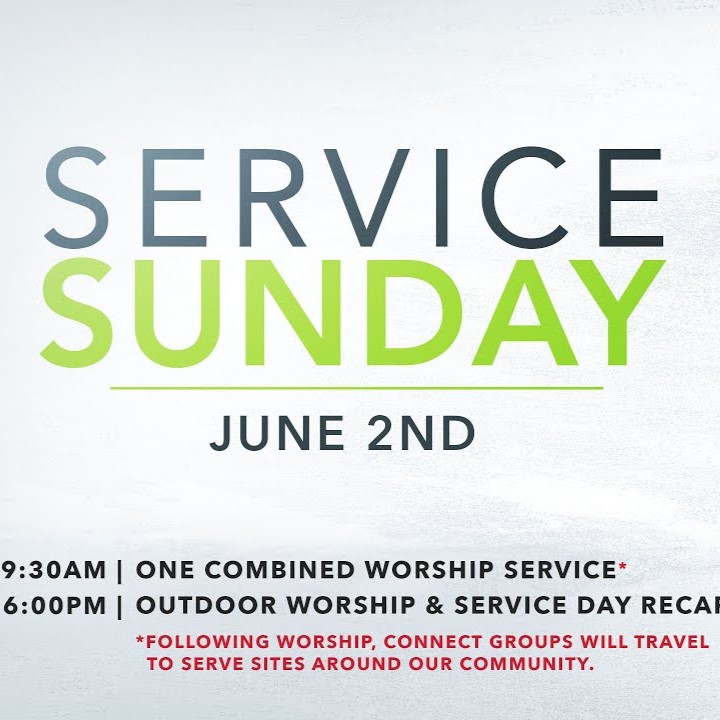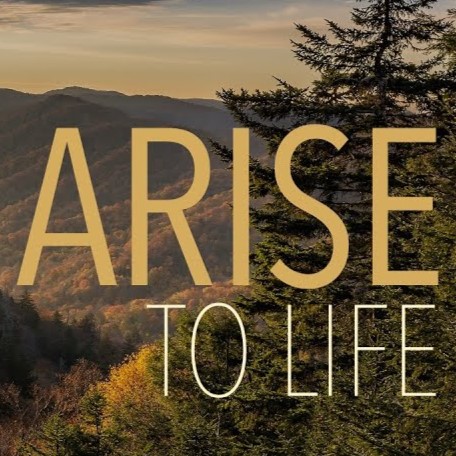[00:00:01] Speaker A: Hey, thanks so much for listening to this message. My name is Jason and I'm one of the ministers here at the Madison Church of Christ. It's our hope and prayer that the teaching from God's word you hear today will bless your life and draw you closer to him. If you're ever in the Madison, Alabama area, we'd love for you to worship with us on Sundays at 830 or 10:30 a.m. if you have any other questions about the Bible or want to know more about the Madison church, find
[email protected] be sure to also check out our Bible study podcast, Madison Church of Christ Bible studies. Thanks again for stopping by.
[00:00:38] Speaker B: As we prepare to hear a lesson from clay on the topic of service, we want to read just a couple of verses from colossians three.
And before we read those verses, I want to take just a moment for us to think about and consider even the term service.
And when we initially hear that word, what comes to mind?
There's a lot in this world, the definitions, the concept of service is a little bit different from what we as christians mean when we say service or the concept of service. You know, when we hear service in the world today, we could think about a lot of things. I mean, it could be anything from getting our, our vehicle serviced to being waited on at a restaurant.
Any number of things fit that definition of service in the world.
I suggest to you, though, as Christians, service takes on a whole other concept.
It's a key to our faith as a Christian and rooted in love.
So as we prepare our minds this morning to hear this message from clay, let's go together to colossians three and read verses 23 and 24. Considering who and why we as christians serve.
Verse 23. Whatever you do, work hardily. Ask for the Lord, not for men. Knowing that from the Lord you will receive the inheritance as your reward, you are serving the Lord Christ.
[00:02:30] Speaker C: Well, good morning, y'all. My name is Clayton Smith, if you didn't know that already. But I'm the preaching intern for the last week here at Madison Church of Christ and I'll be here for the rest of the summer. A little bit about me. You can call me Clayton. You can call me Clay. As the youth group found out this past week, you can just point at me and say, preaching in turn.
But I'm going into my senior year at Harding University where I'm pursuing a Bible and family ministry degree, and I'm going into a minor in graphic design as well. I'm super excited to be here for the summer, and I can't wait to learn from both Brandon and Andrew, as well as the rest of the congregation here.
I wanted to start off by telling a story about one of my favorite service projects I did growing up with my youth group, and that was called the Miracle League.
The Miracle League is a baseball league back in Pensacola, Florida that is specifically designed for those with disabilities to go out and play baseball with those that are like them.
The way that the youth group would participate in this is that they had a program called a buddy system, which we would basically be there to help them hit, run, cheer them as whatever happens, happens.
But the buddies are a big deal to the players, especially the guy players.
You could see the look on their faces whenever all the buddies would line up in a row, and they got to choose their buddies like it was back in first grade again, and everyone was lined up with team captains, and you could see them look at each other and say, I'm going to choose the pretty one.
So naturally, the guy players took the girl players, girl players took the guy players, whichever ones they deemed the cutest.
And finally, once all the other girls were gone, one of the guys looked at me and said, I guess I'll pick him.
That's about how the conversation went with every other guy in the youth group.
But I say it's one of my favorites because honestly, it was fun to play baseball with them. But aside from that, I vividly remember the looks on those kids faces when they got a hit or they got on baseball or they got home. Even when they got out, everyone was just happy to be there and have a good time.
If you haven't looked around or seen the slideshow or any context clues, today is service Sunday, and after the service is over, we'll be splitting up and serving the community in so many different and amazing ways, and I can't wait for all of us to go do that.
But what exactly is service?
I love the thoughts that were said just a moment ago, because when I think of service, I see so many different versions of it this past week, Memorial Day. We think about the soldiers that lost their lives and sacrificed their lives in service for this country.
We think about butlers or servants or waiters or waitresses whenever they are in service to their masters or their guests.
We also think of service as a verb whenever it comes to getting our car serviced or anything maintenance.
But at the core of each of these service oriented things is a central definition from Oxford Dictionary. The action of helping or doing work for someone. That's what service is. But to us christians, it means so much more. And there's four things I want to talk about that service means to us as christians.
First thing, service is reflective.
Service is reflective of the God that we serve and the love that he has for everyone in the world. We see Jesus talk about this a bit in the sermon on the mount. In the sermon on the Mount, Jesus is laying down the groundwork for the people listening to him at the time as well as his own disciples. He takes the time throughout the sermon on the mount to essentially explain the do's and don'ts of Christianity.
Don't be angry. Give to the needy. Don't boast. Don't tie yourself to things of this world. Don't worry. Find a solid foundation in God.
But one of the first things that he talks about is being the light of the world. We see this in Matthew 514 16.
It reads, you are the light of the world. A city set on a hill cannot be hidden, nor do people put it under a basket, but on a stand. And it gives light to all in the house in the same way. Let your light shine before others so that they may see your good works and give glory to your father who is in heaven.
Many of us are probably very familiar with this verse and the being a light to the world. I mean, most of us grew up with the song this little light of mine. Right? We do the little finger. This little light of mine, I'm going to let it shine. Let it shine all the time. Let it shine to us. That analogy of letting our light shine makes perfect sense.
Be a light in a dark room and illuminate everything around us with God's love.
But there's this second sentence that Jesus says about being a city set on a hill. What's the purpose of that? Why is that there?
I'll answer this by telling you about one of my favorite places that I went to just over a year ago, and that was Athens, Greece. In Athens, they have the Parthenon, but no one really says that they're going to the Parthenon. They say they're going to the Acropolis, which has the Parthenon.
But Acropolis means something completely different. It's greek, obviously. And if you split it up between the two greek words present there, acro and polis, you get the word high city. So the Acropolis is the high city, and that's where the Parthenon is. And I remember vividly walking around the streets of Athens at night and being able to look up in the sky and see this incredibly illuminated, ancient piece of architecture, and it stuck out like a sore thumb, honestly.
But to the ancient audience, the example of a city set on a hill made a lot of sense.
They could look up the hill and see whatever city was up there, and it would just be like a light in a dark room to us.
One of my professors at Harding used this verse and applied a great analogy to it. He said that like a light in a dark room, we are also the city sat on a hill. But we have to be careful where we place ourselves. On the hill.
Too low on the hill, and the world looks at us as just another city. With them, we're no different than the rest of them. But God calls us to be separate and apart.
Too high on the hill, and the world looks at you as something unattainable in more of a holier than thou kind of way.
But if you put yourself right in the middle ground of the hill, the people in the valley can look up and see the hill as well as the city, see the city as something attainable, and then see the hill beyond.
So how do we establish this middle ground? How can we put ourselves in the middle so that the world reaches us, but we reach toward God?
I think one of the best answers we have to this is one Peter, chapter four, verses ten through eleven.
As each has received a gift, use it to serve one another as good stewards of God's varied grace. Whoever speaks as one who speaks oracles of God, whoever serves as one who serves by the strength that God supplies, in order that in everything God may be glorified through Jesus Christ, to him belong glory and dominion forever and ever. Amen.
So we establish this middle ground through our service, and we show the love that God has for the world. And in a way, we are mirrors.
How many of you know the song? They'll know we are christians by our love?
Anyone? Yeah. Okay. Just wanted to make sure we were on the same ground here.
It was one of my favorites growing up. It's a very, very simple song. And just like the title of the song says, the chorus sings and they'll know we are christians by our love.
I grew up in a public high school where my brother and I were two of the very few that outwardly admitted that they were christians. So naturally, my friends in high school weren't christians. And I have some very interesting stories about that.
But because my friends weren't christians, I can tell you that they were bitter toward christians in the church, because in their experiences with christians in their daily life, they saw so, so many things, but very rarely did they see love.
That's why I say we are mirrors. If we make sure that our life is a complete reflection of God's love, those around us will feel that love.
But if we're off our mark ever so slightly, the people around us could perceive God in a completely different light.
We very well could be the only example of a Christian that someone sees in their lifetime.
So we need to choose to constantly reflect God's love so that those around us can feel that love.
Second point, service is contagious in multiple ways. One of the few ways, it spreads like a virus. And that goes for inside of us as well. Whenever we serve, whenever we serve more and more, it helps us recognize more and more ways that we can serve.
So when we stop looking at ourselves so much and start looking at the world around us, we begin to see the people around us that need help in even the most simple ways. Holding a door, crossing a street, even just advice that someone may need, they may be going through a hard time, and it's clear on their face.
Another thing is, serving gives us a dopamine hit. Literally.
When we serve, the chemicals in our brain react in such a way that we feel good after we do good. Isn't that crazy how that works?
The Mayo Health clinic did a study on those that volunteered versus those that didn't, and they found some pretty interesting results.
According to their studies, volunteering or serving was proven to improve people's physical health when compared to those that don't volunteer.
Not only that, but volunteering was proven to lower rates of depression and anxiety when compared to those that didn't.
It's amazing to see the effects that serving those around us can have on our own lives, not just spiritually, but physically and mentally as well.
Serving even helps others be inspired to serve. And I'll use an example for this. Guys may get this more than girls, but have you ever been to a restaurant that has two sets of double doors?
When someone opens that first set of double doors for you, what do you do?
Typically, you open that second set, you're like, I have to open this. There's people behind me now. I gotta do this. I have to pass it forward.
There's something about acts of service being done for us that impacts our brains to where we ourselves become more service minded.
And that's just a simple service act that we can see in our everyday lives. But the Bible also shows this as well. Acts, chapter four, verses 32, 37. Now, the number of those who believed were of one heart and soul, and no one said that any of the things that belonged to him was his own. But they had everything in common and with great power. The apostles were giving their testimony to the resurrection of the Lord Jesus, and great grace was upon them all. There was not a needy person among them, for as many as were owners of land or houses sold them and brought the proceedings of what was sold and laid it at the apostles feet, and it was distributed to each as any had need. Thus Joseph, who was also called by the apostles Barnabas, which means son of encouragement, a Levite, a native of Cyprus, sold a field that belonged to him and brought the money and laid it at the apostles feet.
If you're familiar with the Book of Acts in this specific chapter, you may recognize that this passage is the buildup to the unfortunate ending of ananias and sapphira. But that's not what we're focusing on today.
We're focusing on these specific verses, 32, 37, and there's some important implications. Specifically in verse 36, the very start of verse 36 starts with the word thus.
Thus is not a word that we use very often in our language, and it's a causal word.
It implies that because of the actions of the people that were described in verses 32 through 35, Barnabas did the same, and he served as well.
The service that the people performed for the apostles was so contagious that Barnabas joined in the call to service as well. And what we need to realize is, just like the actions of the believers that day influenced Barnabas to serve, our service does the same to those around us, because service is contagious.
Number three, service is unconventional. It's a long word, I know, but service is unconventional.
For me, when I think of service, I think of yard work, visiting nursing homes, helping an elderly person move out of their home. But there are so many other ways to serve than just that. And we look at the Bible for examples of this. We see Joseph of Arimathea. He was a wealthy jew that was a member of the Sanhedrin, which the Sanhedrin is essentially the supreme court of Jerusalem.
And because of the job that he held and the popular opinion of the Jews at the time about Jesus specifically, there was only so much he could do with his job position to help Jesus. But you know how he did help John. Chapter 19, verses 38 through 42, tells us the story of Joseph of Arimathea along with Nicodemus. And they asked Pontius Pilate for the body of Jesus, giving jesus the proper burial, getting the linen and the 75 pounds of spices and laying it on him and putting him in a brand new tomb.
Believe it or not, all of that costs money, a lot of money.
So Joseph and Nicodemus served through their finances. That job required a wealth to it that no apostle of Jesus was ever really known for having. So Joseph and Nicodemus stepped up to the plate in a very unconventional way. In another way, we see it in the feeding of the 5000.
Matthew 14 1321 tells us of the time that the followers of Jesus were hungry and they needed food and no one really had any. And so if you look at the latter half of verse 19, the disciples are the ones told to distribute the food.
What I get from this is that we can serve through service. In a way. I know that service through service sounds weird. Just roll with it. From what I've been seen, what I've been seeing and been told, we have a great many people here in this congregation that have enlisted in helping this church with their services every Sunday through so many different means. Security, song, leading, prayer, anything.
And I'm very, very grateful for that. But I also know that there can always be more newer members that haven't put themselves out there yet. The current or older members that say that the volunteers that are there now have it covered. I believe I can speak for everyone here and the current volunteers when I say, wherever you think you can help, you can. Whatever you think you want to learn how to do or be more involved in, you can certainly do that and we're more than happy to help you with that. I've been told that there's an online service that helps us know what you do and don't want to do here.
So make sure if you want to start getting more involved here to make your ministry service pro service profile, there's more than enough options to specifically select what you do or don't want to do, and we're more than happy to help you select what you want.
Aside from service through finance and service, there are countless other ways to serve. And Romans highlights this perfectly. Romans twelve four eight. For as in one body we have many members and the members do not all have the same function. So we, though many, are one body in Christ and individually members of one another, having gifts that differ according to the grace given to us, let us use them. If prophecy in proportion to our faith, if service in our serving. The one who teaches in his teaching, the one who exhorts in his exhortation, the one who contributes in generosity, the one who leads with zeal, the one who does acts of mercy with cheerfulness.
I say all this to say don't limit your idea of what service can be, because service can be unconventional, and you may never know just how needed that unconventional service is until you get up and do it.
Speaking of getting up and do it, our next point is service is dirty.
How many of you have seen the show dirty jobs?
It's a show I watched growing up and it was. It was a great show. I feel. I think it's still running actually, somehow. But for those of you that don't know, every episode, the host Mike Rowe shows a different disgusting job while shadowing the current job's employees that are explaining how to do the job every episode. Mike Rowe is incredibly impressed with the skills needed for this job and admires the willingness of the worker to do this dirty job.
But I remember watching the show as a kid and thinking two things at the same time.
That's a job and I would never want to do that.
Why do I bring this up? That's because service sometimes requires that we do what everyone else doesn't want to do.
Just before I started my internship here, I went on a cruise to the western Caribbean with my family. We went to Cozumel, Mexico, Georgetown, grand Cayman, Falmouth, Jamaica and Disney's private island castaway key.
But I wanted to highlight my visit to Jamaica for a second. While we were there, we did a hike called Dunn's River Falls.
That's about what it looks like. There's a lot of people there all the time and you start off holding everyone's hands like this in a straight line. And I don't think you all realize how much this does a number on your balance when you're climbing up rocks covered in water. It's rough.
It's about 180ft tall and 600ft long, which makes the hike about 960ft, not that bad at all. But the entire time you hike this, you're following a guide that is showing you rocks to step on through the surprisingly strong current of this falls.
Every day that those tour guides are working, they go out to the falls and check which route in the falls they should take that day, depending on the strength of the current of the water there.
Once they find their route, those tour guides take a wire brush and scrub every rock on the path that they have chosen for the day so that no one will slip on the moss that grows on the submerged rocks.
They do this for at least 2 hours before the tours start that day.
No one wants to scrub the rocks. That is awful. Just scrubbing rocks for 2 hours before you even start your day. Not me, but if they want everyone to follow them to the top of the falls, they make sure the path is safe enough for everyone following to make it to the top without slipping surface for us may look like we're scrubbing the rocks. That way the people behind us have less of a chance of slipping and falling in their faith.
We see another example of this dirty work in the gospel of John.
John, chapter 21, verses 15 through 17.
When they had finished breakfast, Jesus said to Simon Peter, Simon, son of John, do you love me more than these? He said to him, yes, lord, you know that I love you. He said to him, feed my lambs. He said to him a second time, Simon, son of John, do you love me? He said to him, yes, lord, you know that I love you.
He said to him, tend my sheep.
He said to him, the third time, Simon, son of John, do you love me? Peter was grieved because he said to him the third time, do you love me? And he said to him, lord, you know everything. You know that I love you. Jesus said to him, feed my sheep.
This takes place after Jesus resurrection, and Peter is riddled with the guilt that he felt from denying Jesus the three times beforehand as a mark of forgiveness and redemption that Jesus has for everyone. He asks Peter three times if he loves him. Each time Peter responds with, yes, of course I love you. And after each time Peter confesses this love for Jesus, Jesus tells him to feed or tend to my sheep. We heard last week about Andrew's lesson about being a shepherd. And I think that this passage, especially with the installment of the shepherds that just happened today, is one that is incredibly important for where we are as a congregation today.
Because being an actual shepherd that tends to sheep is a really dirty job. But so is being a shepherd of the church. The shepherds here put in countless hours along with the staff to ensure that we have a church that runs smoothly and that we're doing absolutely everything we can to help the community as well as members of the church.
But just as Jesus calls Peter to serve in this passage, he calls all of those that love him to serve, not all that are perfect in the eyes of the Lord, all those that aren't sure what they're doing or where life is taking them, those that find themselves doubting from time to time, those that feel they're just too wrapped up in their own sin to even think about approaching him.
God calls them not only to serve, but to be served.
I'll wrap up with Colossians 323 24. Whatever you do, work heartily as for the Lord and not for men. Knowing that from the Lord you will receive the inheritance as your reward, you are serving the Lord Christ.
If you need anything from the church today, prayers, a helping hand, a shoulder to cry on, please come forward and we'll be happy to serve you this morning as we stand and sing.





